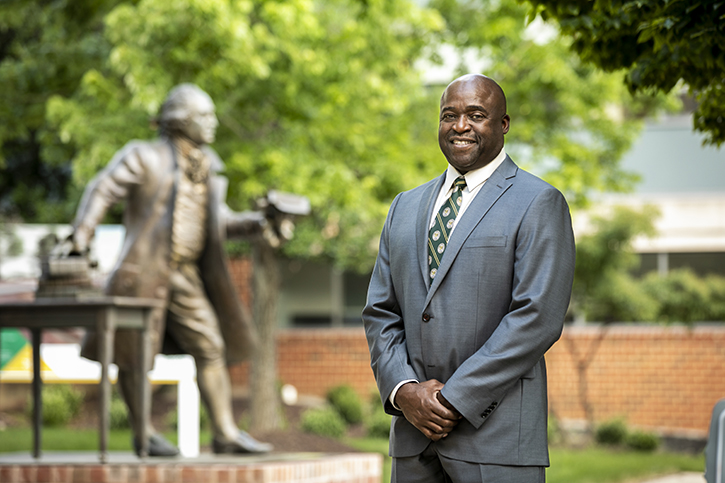In This Story
Good Morning, Patriots!
I am so grateful for the opportunity to be your 8th President. Like anyone new to George Mason University, I keep returning to a fundamental question: What does it mean to be a Patriot?
The answers to that question are different today than they were a year ago, even six months ago. On February 24, when I accepted the offer to become Mason’s president, the coronavirus was a problem in South Korea and Italy – but not here. US unemployment was at 3.5 percent. George Floyd was still alive.
We no longer live in the world of February 24. This strange, new place comes with different demands and new opportunities for us, as individuals and as a community. Who we are at our core will serve as the tenets and guideposts that we will deploy to help us resolve our major issues.
This summer, we are dealing with three simultaneous crises: A lingering pandemic, a looming budget shortfall that the cratering economy has forced, and a collective reckoning with fundamental racial inequities that we have allowed to simmer just beneath the surface for far too long. There is no playbook to help us through this multitude of crises. Our unique solution to them will come from the application of who we are, as Patriots.
What does it mean to be a Patriot?
If we close our eyes and envision a patriot, we might see the classic image of an individual taking up arms to defend our country. But is that all there is to patriotism? By definition, it is an expressed feeling of love, devotion and sense of attachment to a particular place or way of life. There is so much more to being a Patriot than the physical defense of our country, and here at Mason, we have a more expansive, more inclusive approach to patriotism.
What drew me to Mason was its mission to insist that excellence and inclusivity are not seen as merely compatible. In fact, each is required for the other to exist. There can be no academic excellence in a system structured to exclude people. And inclusivity counts for nothing if it only invites us into a larger circle of mediocrity.
At Mason, we embrace the complexities and contradictions of our world, our nation, and our community. How many other universities can boast the productive coexistence of schools as diverse as the Jimmy and Rosalynn Carter School for Peace and Conflict Resolution and the Antonin Scalia Law School?
In addressing our namesake’s own complicated history, we have acted with careful intention, by joining a group of universities called “Universities Studying Slavery,” wherein we research the relationship our institutions to slavery, and how we reckon with that past. We have opted to build, learn, and teach in our public spaces, by dedicating an educational memorial to the enslaved men, women and children whom George Mason kept in lifelong, generational bondage even as he fought passionately to establish the Bill of Rights.
I am still very new here. But in my opinion, it is the act of a Patriot not to deny the contradictions in our history, our community, and our own lives but to face them, embrace them, and grow honestly through them.
I’m looking forward to starting a dialogue with you; please bookmark my website and follow me on Twitter @GMUPres. In the coming months and years, you and I will forge this more expansive definition of being a Patriot, and we will act accordingly. Because we are past the time of merely talking about what needs to be done. We know what we need to do.
So, Patriots, let’s get to work.

Gregory Washington is George Mason University's eighth president. Photo by Ron Aira/Creative Services
